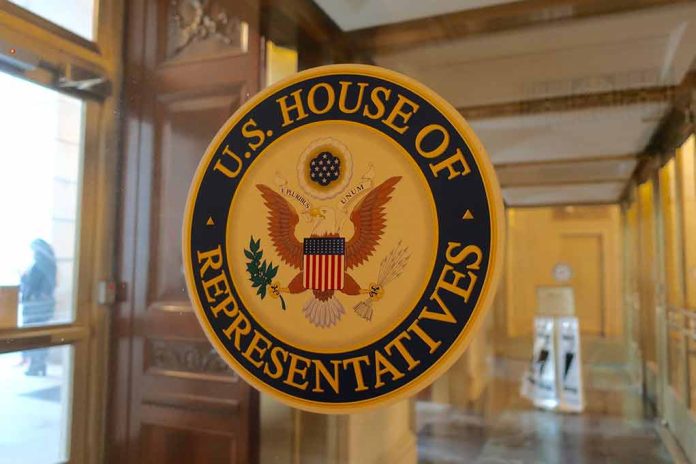
House Republicans refuse to unveil a controversial report in regards to allegations surrounding Rep. Matt Gaetz, escalating tensions within Congress.
At a Glance
- House Republicans block the release of a report on Rep. Matt Gaetz’s allegations.
- The vote was close, with 206 against releasing the report versus 198 in favor.
- Rep. Tom McClintock was the only Republican siding with Democrats.
- The report involves serious allegations, including misconduct with a minor.
The Vote Breakdown
In a tightly contested vote, House Republicans thwarted Democratic attempts to release a report probing allegations against Rep. Matt Gaetz. The House vote ended 206 to 198 against the report’s disclosure. Among Republicans, Rep. Tom McClintock broke ranks by supporting Democrats’ call for transparency. The decision underscores the significant political divisions swaying the legislative process. Speaker Mike Johnson maintained his party’s majority stance, emphasizing institutional traditions and warning against the implications of setting precedents.
Democratic Rep. Sean Casten condemned the Republican decision, accusing the party of sidestepping accountability for allegations of severe misconduct. Casten criticized the vote noting, “Today, the majority of the House…could have ensured a vote on whether or not former Members should be held accountable…Instead, the House voted to sweep these allegations under the rug.” This sentiment resonates with many who advocate for legislative transparency and accountability within congressional proceedings.
The Allegations and Investigation
The allegations against Rep. Gaetz, vigorously denied by him, involve claims of sexual misconduct and illegal drug use with a minor. Despite the gravity of these claims, federal investigations concluded without charges against Gaetz. The controversial nature of these allegations continues to fuel bipartisan disputes, with Democrats pressing for the report to be made public to potentially shed light on any lingering questions or ethical breaches connected to the congressman’s conduct.
The report remains classified due to the Republicans’ successful blocking of the resolution. This decision continues to spark debate over transparency versus institutional integrity, with Gaetz’s detractors arguing for the urgency of public oversight. The outcome mirrors past instances where political maneuvers overshadowed ethical deliberations in congressional history.
Fallout from the Attorney General Nomination
Amidst the political turmoil, Matt Gaetz withdrew from consideration for the Attorney General nomination. The decision followed a wave of bipartisan pressure and controversy surrounding former President Donald Trump’s nomination of Gaetz. In his withdrawal statement, Gaetz acknowledged, “While the momentum was strong…I’ll be withdrawing my name from consideration to serve as Attorney General.” Democrats perceived his resignation as a tactful retreat to evade the mounting ethical questions.
Gaetz’s departure from the congressional arena left a notable void, leading to Trump’s subsequent nomination of Pam Bondi. Bondi, expected to face less controversy during the confirmation process, represented a strategic shift aimed at reducing contentious debates within the Trump administration’s placements. The ongoing saga serves as a reminder of the intricate balance between legal exoneration and moral scrutiny, a narrative symbolizing the current climate of American politics.
Sources:
House Republicans defeat Democratic resolution to release Gaetz report














